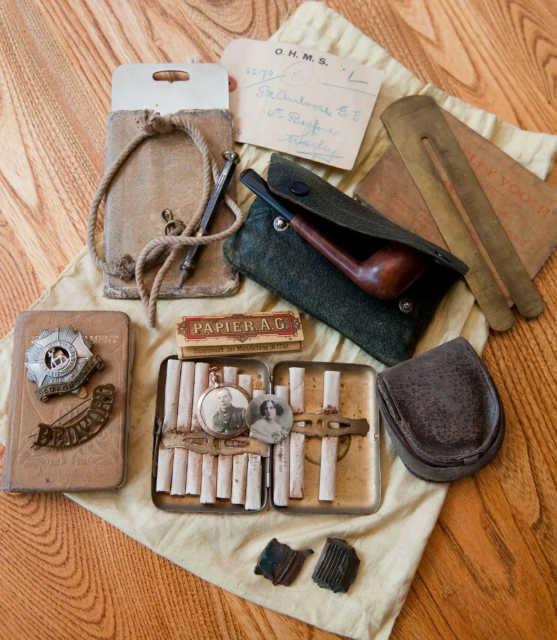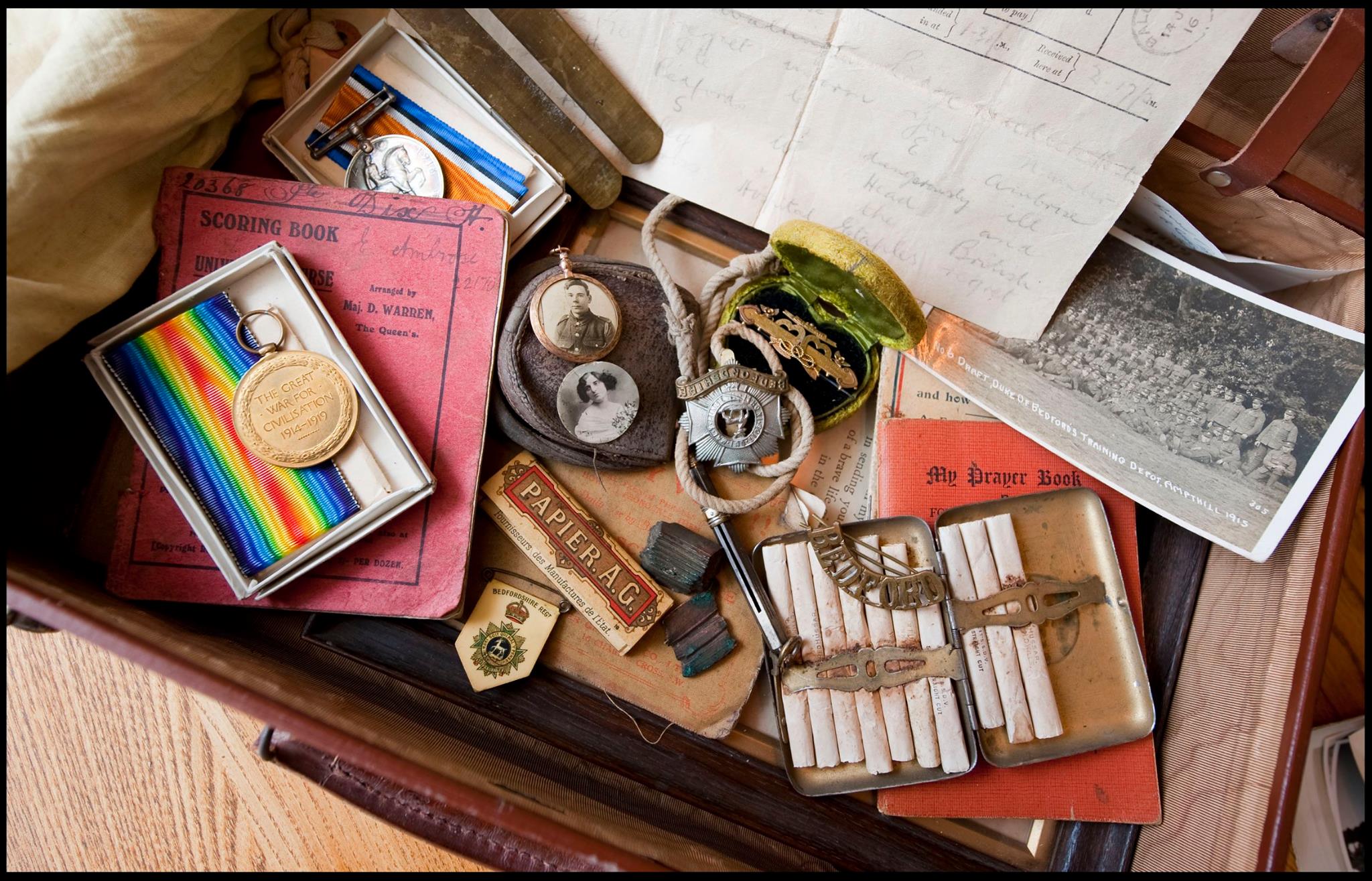In 1916, a heartbroken mother, Sarah Ambrose, placed her dead son’s personal effects into a brown leather suitcase and stored it in the attic, where it lay undisturbed for almost 100 years.
Ted Ambrose, aged 18, underwent nine months of training before being sent to the front with the 6th Bedfordshire regiment.
He was sent to hospital soon after arriving at the front with a perforated eardrum caused by a shell explosion close to him.
Shortly before he was due to return to the front, he contracted German Measles, and his stay in hospital was extended.
On 1st July 1918, he was returned to the front lines during the Battle of the Somme.
On the 7th July 1916, he, along with his regiment, went over the top, and he was gravely wounded by shrapnel from an artillery bombardment. In this bombardment, 100 men from the 6th Bedfordshire regiment were either killed or seriously injured.
With wounds to his arm, leg, and head, he was transferred to the hospital in Etaples, some 40 miles from Calais for treatment.
His family was notified of his injuries, and his mother asked for permission to visit her son in the hospital, but this was refused by the medical authorities, citing her son’s grave condition as the reason for denying the visit. Private Ambrose, had, in fact, passed away an hour before.

Private Ambrose was buried in the cemetery at Etaples Hospital.
The hospital then sent all Private Ambrose’s personal effects to his mother in Hertfordshire. This was when his mother, devastated at the death of her eldest son, placed all his things into the brown leather suitcase and put it away in the attic.
It was only opened once, and that was in the 1920s when she added his campaign medals to the other personal items in the case.
The case was passed on to Private Ambrose’s sister, Margaret, who, in turn, passed it on to her sons, John and David.
In 2014, the family saw an appeal by the ‘Herts at War’ project, which was looking to mount an exhibition to mark the 100th anniversary of World War I.
They knew of the suitcase and decided to see what was inside that may be used in the exhibition but were stunned to find such a treasure trove of items from that conflict.
Among the items were several items issued to each serviceman. These included a button cleaning tool that allowed the soldier to polish his buttons without removing them from the uniform.
Pt.Ted Ambrose was a young soldier killed in #WW1. His mother locked his returned belongings in an attic. A snapshot of his life, they were rediscovered 90 years later & shared by the @herts_at_war project. https://t.co/ETbSkBK262 #Remembrance2017 #ChangingLives #NationalLottery pic.twitter.com/NTNPJeaRKt
— National Lottery Heritage Fund (@HeritageFundUK) November 12, 2017
There were also several booklets, a red-covered pamphlet issued by the Army on how to shoot and maintain your rifle, a white booklet on common French phrases that the average soldier may use, and a prayer book, all neatly packed into the suitcase.
They also found two telegrams from the War Office to Ambrose’s mother. The first notified her of their refusal to allow permission to visit her son in hospital as he was ‘gravely wounded,’ and the second informing her of his death.
There were also his regimental badges and a photograph taken as the completion of his training with the 6th Bedfordshire regiment at Ampthill in 1915. There were also his medals that were awarded posthumously.
Follow the amazing work of Herts at War on Facebook also.
Also included was a leather pouch that Ambrose used as a purse that contained two pieces of shrapnel.
The most poignant of the relics found was a locket that contained photographs of Ted Ambrose and his sweetheart, Gladys.
There was also a keepsake brooch, given by Gladys to Ted, inscribed with the words “The Lord watch between thee and me when we are absent from each other.”
The case also contained all the letters that Ted had sent to his family and those sent from his family back to him. One of these letters was from his father, wishing him luck.
The story was revealed by Dan Hill, a historian, and author of the book, ‘Hertfordshire Soldiers of the Great War.’
Secret Shrine to Son Killed in WW1 Bricked up for a Century Revealed
As Dan Hill said, Ted was not a famous person; he did not perform great feats of gallantry; he was a simple lad from Hertfordshire that did his duty and went to war.
